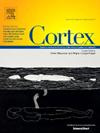前瞻性记忆中与年龄和任务设置相关的成绩预测:元认知能解释年龄-前瞻性记忆悖论吗?
IF 3.2
2区 心理学
Q1 BEHAVIORAL SCIENCES
引用次数: 0
摘要
本研究通过调查年轻人和老年人在实验室和自然环境下执行的基于时间的任务中预测其未来记忆表现的准确性,探讨了元认知在所谓的 "年龄-前瞻性记忆(PM)悖论 "中的作用。评估元认知监控的方法是要求参与者在项目水平上对 PM 的前瞻性(记住必须做某事)和回顾性(记住做了什么)部分进行学习判断(JOL)。就学习动机的表现而言,前瞻性部分的结果显示,在基于实验室的任务中,年龄越大,学习动机的表现越差,而在自然任务中,年龄越大,学习动机的表现越好,这与年龄-学习动机悖论是一致的。在元认知方面,不同环境下的年龄差异很大。特别是,研究结果表明,老年人在实验室任务中的 JOL 分辨能力较差,而年轻人在自然环境中的 JOL 分辨能力较强。这表明,年龄较小和年龄较大的参与者无法区分他们以后会击中或错过的项目,但他们是在不同的环境中这样做的。此外,虽然两个年龄组的受试者在自然环境中都表现出过度自信,但年轻人的这种偏差明显更大。这也许可以解释观察到的成绩差异。也就是说,与年轻人相比,老年人在自然任务中的优势可能来自于他们在这种环境中预测成绩的能力更强,而年轻人则倾向于严重高估自己的能力,因此可能不会采取适当的策略或计划。这些研究结果说明了元认知监测过程对下午作业表现的功能相关性,并建议将元认知视为解释年龄-下午作业悖论的一个关键因素。本文章由计算机程序翻译,如有差异,请以英文原文为准。
Age- and task-setting-related performance predictions in prospective memory: Can metacognition explain the age-prospective memory paradox?
This study explored the role of metacognition in the so-called “age-prospective memory (PM) paradox” by investigating the accuracy of younger and older adults’ predictions of their future PM performance in time-based tasks performed across laboratory and naturalistic settings. Metacognitive monitoring was assessed by asking participants to make judgments-of-learning (JOLs) on an item level for both the prospective (remembering that something has to be done) and retrospective (remembering what to do) components of PM. In terms of PM performance, the results for the prospective component revealed an age deficit in the laboratory-based task and an age benefit in the naturalistic task, in line with the age-PM paradox. In terms of metacognition, important age differences were found across settings. In particular, the results pointed to poor resolution of JOLs made by older adults in the laboratory and by younger adults in the naturalistic setting. This suggests that younger and older participants could not discriminate between items they would later hit or miss but did so in different settings. Furthermore, although both age groups exhibited overconfidence in the naturalistic setting, this bias was significantly stronger for the younger adults. This might explain the observed differences in performance. That is, the advantage older adults have in naturalistic tasks may stem from a better ability to predict performance in this setting compared to younger adults, who tend instead to heavily overestimate their capabilities and may therefore not engage in appropriate strategies or planning. These findings speak to the functional relevance of metacognitive monitoring processes for PM performance and suggest considering metacognition as a key factor in explaining the age-PM paradox.
求助全文
通过发布文献求助,成功后即可免费获取论文全文。
去求助
来源期刊

Cortex
医学-行为科学
CiteScore
7.00
自引率
5.60%
发文量
250
审稿时长
74 days
期刊介绍:
CORTEX is an international journal devoted to the study of cognition and of the relationship between the nervous system and mental processes, particularly as these are reflected in the behaviour of patients with acquired brain lesions, normal volunteers, children with typical and atypical development, and in the activation of brain regions and systems as recorded by functional neuroimaging techniques. It was founded in 1964 by Ennio De Renzi.
 求助内容:
求助内容: 应助结果提醒方式:
应助结果提醒方式:


